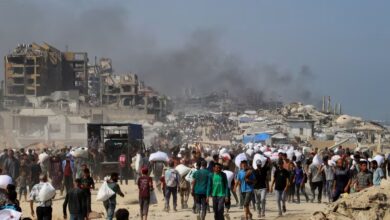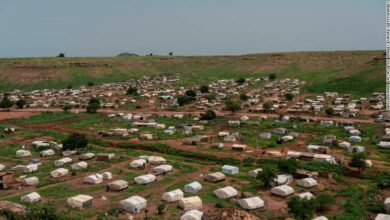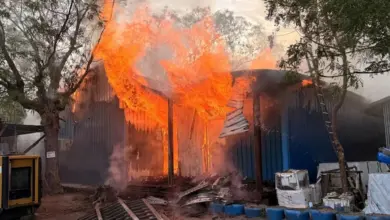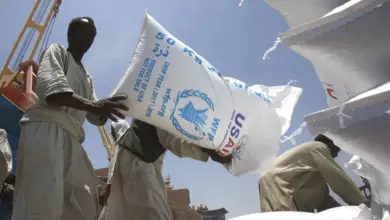Juba–Southern Sudan's president on Sunday offered a prayer of forgiveness for northern Sudan and the killings that occurred during a two-decade civil war, as the first results from a weeklong independence referendum showed an overwhelming vote for secession.
Exhausted poll workers who counted ballots overnight and deep into Sunday morning posted returns at individual stations, and an Associated Press count of a small sample showed a 96 percent vote for secession.
Sudan's south ended its independence vote Saturday, a vote most everyone believes will split Africa's largest country in two at the divide between Sudan's Muslim north and Christian and animist south. The two sides ended a more than two decade civil war in 2005 in a peace deal that provided for last week's vote.
If everything stays on track, by July Southern Sudan should be the world's newest nation.
At a church service Sunday, Southern Sudan President Salva Kiir — a stoic man not known for showing emotion — smiled, gently clapped and swayed during a service that took on a jubilant and celebratory air.
"For our deceased brothers and sisters, particularly those who have fallen during the time of the struggle, may God bless them with eternal peace and, like Jesus Christ on the cross, forgive those who have forcibly caused their death," Kiir said.
There were scattered attacks in Southern Sudan last week and in the contested region of Abyei, but the vote was peaceful, earning the praise of international observers and UN Secretary-General Ban Ki-Moon.
Catholic Archbishop Paulino Lukudu said Sunday: "What we have in front of us is peace."
An AP review of results at 10 sites in the south's capital of Juba found that almost 96 percent of the almost 30,000 ballots cast were for secession. About 3 percent were for unity and the rest were invalid.
That's only a small sample of the approximately 3.2 million votes cast, but almost all observers believe the south voted for secession. The referendum needs to pass by a simple majority. Results won't be certified until any appeals are heard in early February.
"My reaction is just happiness," said Okula Thomas, a 24-year-old university student who waits tables at an Ethiopian restaurant. "We are going to get our freedom, we will get development, and life will change."
Sudan's ruling party in the north said Friday it was ready to accept southern independence. Border demarcation, oil rights and the status of the contested region of Abyei — the most difficult issue on the table — still have to be negotiated.
Mohamed Ibrahim Khalil, the chairman of the south's referendum commission, said 83 percent of those registered in the south and 53 percent of those registered in the north had cast votes. Khalil said he believed the referendum would be judged as "a good result by any international standard," noting that the commission set up the vote in four months.
Poll workers at the more than 2,600 stations in Sudan worked overnight and often by candlelight.
"We are very tired and very hungry," said Lonyik Roberts, 31, the lead poll worker at one of the Juba stations. "We continued counting throughout the night. We are waiting now for the referendum commission to collect the ballots."
Gonda Keffa, a poll worker at Juba University's polling site, said his team began counting ballots at 8 p.m. Saturday night and finished at 5:30 a.m. Sunday
"We worked throughout the night," said Keffa, 24. "That's why you can see we are just feeling giddy."




